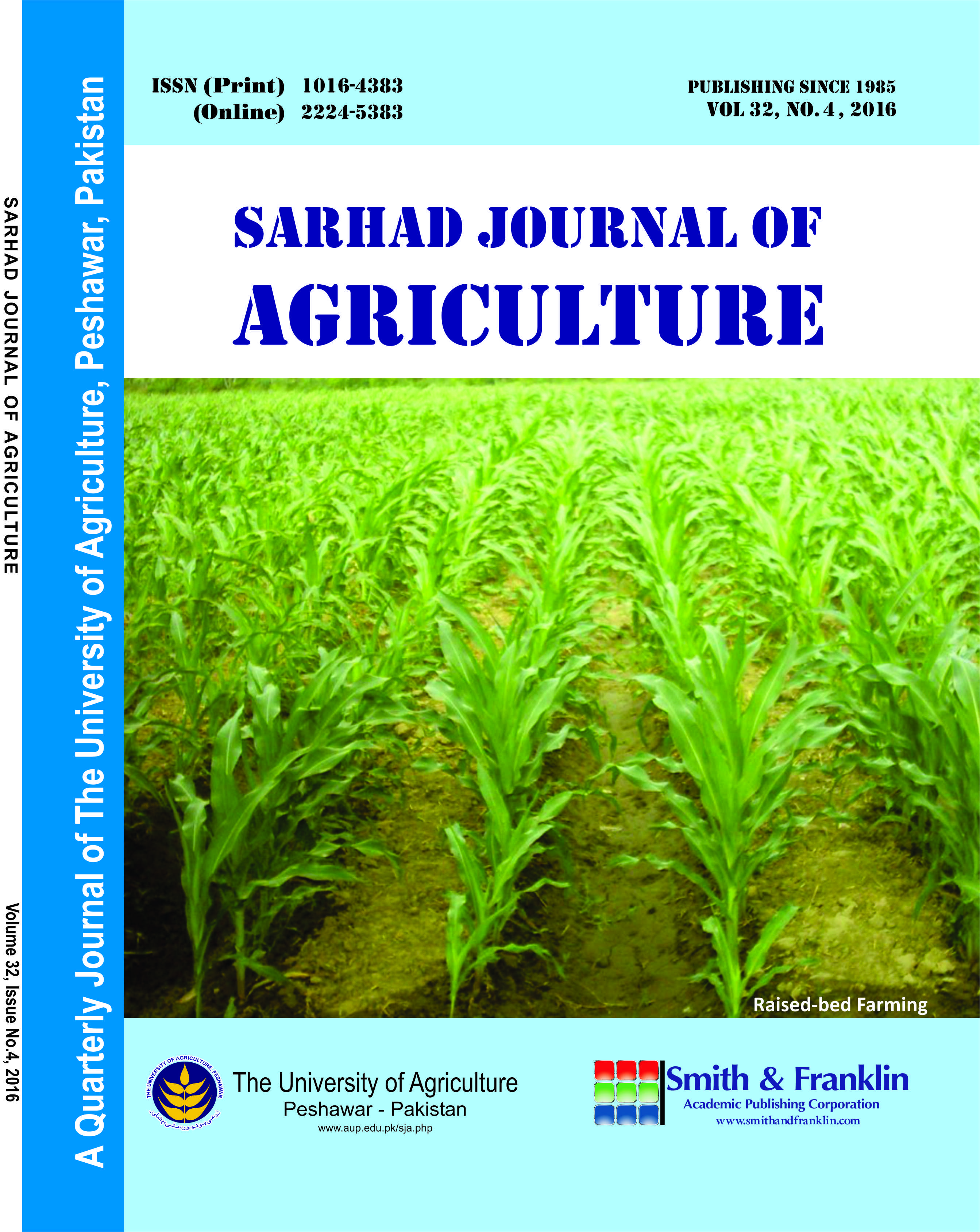Integration of Biochar and Legumes in Summer Gap for Enhancing Productivity of Cereal Based Cropping System
Integration of Biochar and Legumes in Summer Gap for Enhancing Productivity of Cereal Based Cropping System
Muhammad Arif1, Fazal Jalal1, Mohammad Tariq Jan1, Dost Muhammad2
ABSTRACT
Biochar can improve soil quality, increase crop production and sequester C in agricul- tural systems. Two years field experiments were conducted on corn crop at the research farm of the University of Agriculture Peshawar, during 2011-2013. Wheat-maize-wheat cropping pattern was followed with the adjustment of legumes in summer gap (land available after wheat harvest till maize sowing). Legumes i.e. mungbean, cowpea and sesbania with a fallow were adjusted in the summer gap with and without biochar application. Biochar was applied at the rate of 0 and 50 t ha-1 with four N levels of 0, 90, 120, 150 kg ha-1 to subsequent maize crop. Biochar significantly enhanced plant height and grain yield. The plots previously sown with legumes produced taller plants and high number of grains ear-1. Nitrogen application increased plant height, number of grains ear-1, thousand grains weight, grain and biological yield. It is concluded that integration of biochar and legumes could be a useful strategy for enhancing the overall farm profitability and productivity of cereal-based systems by providing increased yields from this additional ‘summer gap’ crop.
To share on other social networks, click on any share button. What are these?







